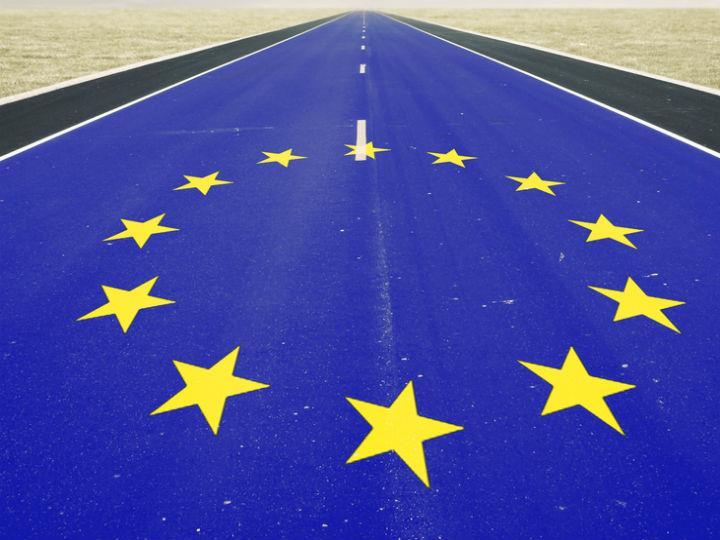The resolution adopted by the European Parliament at it plenary in Strasbourg on 10 September calls on the European Commission" to review and suspend temporarily, if needed, all funding not related to human rights, civil society and grassroots level people-to-people cooperation granted to Azerbaijan through the European Neighbourhood Instrument" and recalls Parliament's decision to send a delegation to Azerbaijan.

The resolution, which is non-binding, was adopted by 365 but faced fierce opposition, especially from the largest political group in the European Parliament, the centre-right European People′s Party, with 202 no votes and 72 abstentions.
by
Martin Banks
Members of the European Parliament have spoken about a controversial resolution adopted by the assembly that some believe threatens to seriously undermine relations between the European Union and the oil-rich state.
The resolution adopted by the European Parliament at it plenary in Strasbourg on 10 September calls on the European Commission" to review and suspend temporarily, if needed, all funding not related to human rights, civil society and grassroots level people-to-people cooperation granted to Azerbaijan through the European Neighbourhood Instrument" and recalls Parliament's decision to send a delegation to Azerbaijan.
The resolution, which is non-binding, was adopted by 365 but faced fierce opposition, especially from the largest political group in the European Parliament, the centre-right European People's Party, with 202 no votes and 72 abstentions.
Authorities in Azerbaijan are incensed by the resolution. Its parliament has responded by adopting a resolution of its own saying it will suspend its membership in the Euronest Parliamentary Assembly, a forum that brings together the European Parliament and national parliaments of the former Soviet republics of Ukraine, Moldova, Belarus, Armenia, Azerbaijan, and Georgia.
Azerbaijan may also quit the Eastern Partnership programme, an EU initiative that regulates the bloc's ties with the six post-Soviet states. Their stance is backed by a rising number of MEPs from various political parties, including Romanian EPP member Ramona Manescu who said, "The European Union and Azerbaijan must continue to work together, as was recently reaffirmed in the Brussels by the visit of the Azerbaijani President Aliyev." The MEP went on, "This cooperation is mutually beneficial not only in terms of the energy sector but also human rights." She acknowledged the "democratic values" of Azerbaijan, pointing out that it had signed up to several international agreements. "I believe," she went on, "that maintaining dialogue with Azerbaijan and strengthening the partnership is actually the way that the European Union must follow and any attempt to cool relations does not benefit any EU or the citizens of Azerbaijan."
MEPs from several other parties have criticised the text, including Gianluca Buonanno, a member of the Europe of Nations and Freedom Group, who said he "did not at all agree" with the resolution. The Lega Nord member added, "Europe must go there (to Azerbaijan) and talk with them and find solutions. This is the serious way to make a decent foreign policy."
Speaking in Parliament, another EPP parliamentary, Irish member Sean Kelly, said, "The suggestion that we should 'immediately' break off negotiations with Azerbaijan makes no sense, because if we were to do that and apply it to other countries in the world then we would have negotiations with no-one. If you took that line with Iran, we would not be talking about the nuclear deal right now."
Leading ECR member Sajjad Karim, a British Conservative MEP, also spoke during the debate and said, "Azerbaijan is frustrated with the lack of progress over Nagorno-Karabakh. It feels that, far too often, the international community disregards the challenges it has had to face in the aftermath of this war in terms of refugees and internally displaced persons. It is true that the international community has probably not been as active as it could have been in solving this protracted conflict which is still, as we speak, claiming lives. "As a friend of Azerbaijan and its people, on a principled position, it is simple and clear: we want Azerbaijan to return to its path towards a European future."
Cristian Dan Preda, EPP group coordinator for foreign affairs, explained the EPP opposition to the resolution, saying, "The EPP refrained from signing and voting for the joint resolution as we consider the text to be just a proof of radicalism that had no potential of bringing any positive effects." He told this website, "We wanted in this way to object also to the strategy of the Greens, which consisted on asking directly the plenary to take a decision on EU-Azerbaijan relations, including funding and dialogue on human rights, while bypassing the foreign affairs committee.
"By voting against the resolution we wanted to object to the radical attitude expressed in the text and call for a realistic and smarter approach to EU-Azerbaijan relations, one which recognises that the effective promotion of human rights passes through dialogue." "So," said Dan Preda, "as a result of the resolution we lost one of the channels of communication we had with Azerbaijan and, therefore, one of the channels of promotion of human rights."
President Aliyev himself has accused the EU of being "anti-Azerbaijani", saying, "The resolution is groundless, biased, and it is a political provocation based on lies."




 By: N. Peter Kramer
By: N. Peter Kramer

